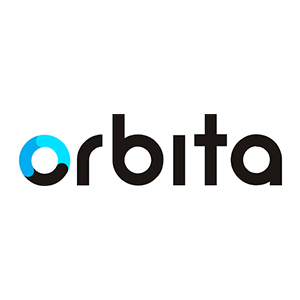It is hardly unexpected that as the coronavirus epidemic continues to spread, demand for triage technology such as conversational bots has increased significantly. For at least two hours, millions of individuals wait to see a doctor. Orbita asserts that its products are ideal for use in the healthcare industry. Orbita offers a platform for automated workflow and healthcare communications that promotes patient recruitment, access, retention, and engagement. Their technology makes it easier for staff to do their jobs by letting patients talk to doctors through text, voice, online, and smart speakers, which are the ways that are most convenient for them.
Artificial intelligence and virtual assistants automate regular chores like self-scheduling, patient reporting, medication adherence, and care management in an easy live-agent escalation system when necessary. The conversational AI engine that powers Orbita’s safe, HIPAA-compliant virtual assistants boosts productivity and lowers costs. Utilize Orbita’s user-friendly natural language solutions to manage, engage, and simplify resource access throughout the business. The American Red Cross, Amgen, Brigham and Women’s Hospital, Cancer Treatment Centers of America, Cognizant, the Mayo Clinic, and Merck are just a few of the well-known brands that Orbita has as clients. Orbita also claims that it uses CDC recommendations to vet all of the material provided by its chatbots with medical specialists. Orbita’s arsenal of secure, HIPAA-compliant conversational AI solutions for healthcare providers (HCPs) augments current sales, remote learning, and clinical decision support tools, helping pharmaceutical companies adapt to key challenges during the Affordable Care Act (ACA). It also has agreements in place to provide access to content from trusted partners like the Mayo Clinic, and its in-house clinical team prioritises the use of that content, which it claims is vetted by “leading institutions.”
By diverting inquiries away from call centres and putting patients in virtual waiting rooms, Orbita’s OrbitaEngage platform enables clients to implement not only chatbots but voice search as well. This makes it simpler to identify physicians, medical facilities, services, and activities. Search engine optimization is done by OrbitaEngage to make sure that content providers’ materials are prepared and accessible to virtual assistants like Google Assistant. Orbita also has a virtual assistant called OrbitaAssist, which the company says is the world’s first voice-enabled, end-to-end HIPAA-compliant assistant. OrbitaAssist enables hands-free communication for patients and care teams with backend analytics, alerts, and escalation, as well as integration with electronic health records. It was created in collaboration with nurses and seeks to reduce needless visits to the bedside by routing patient and care worker requests, confirming patient wishes, and addressing social isolation. In addition, it provides surveys, testing tools, and instructional materials. “The healthcare industry is at an inflection point regarding the use of AI to automate workflows and enhance virtual consumer engagement and management of health.” Patty Riskind, CEO of Orbita, says, “Orbita is uniquely positioned to improve virtual interactions using intelligent voice and chatbots and contextual SMS and email messages—meeting patients and providers where they are—to better navigate and manage encounters across an entire healthcare journey.”
With more people using chatbots, there are now new risks and a need for better ways to find and report negative events. The Adverse Event Detection module from Orbita interacts with current chat services to reliably identify and help users report adverse drug responses, increasing the effectiveness and timeliness of adverse event reporting. Orbita Connect is an extra tool that is a virtual assistant for long-term, pre-visit, and post-visit care. Customers can use smart speakers, mobile devices, online apps, and other channels to set up virtual text, voice, or touch assistants. They can also get experience templates for health care coaching, medication reminders, question answering, and evaluations. Electronic health records, proprietary and third-party content services, population health systems, and health dictionaries and ontologies are all included into a flexible integration architecture. Orbita Prototype, which enables no-code testing of conversational conversations for phone and chat that can be shared with project stakeholders and end users, is available to customers that want fine-grained customization. Additionally, Orbita Answers, a knowledge management framework for creating conversational applications that prioritise question answering, and Orbita Experience Designer, a drag-and-drop design tool with prebuilt components that integrate with current corporate systems, are available.
Company:
Orbita
Management:
Patty Riskind, CEO
Quote:
“Orbita is uniquely positioned to improve virtual interactions using intelligent voice and chatbots and contextual SMS and email messages – meeting patients and providers where they are – to better navigate and manage encounters across an entire healthcare journey.”













